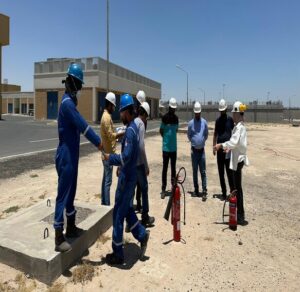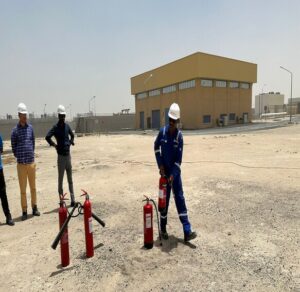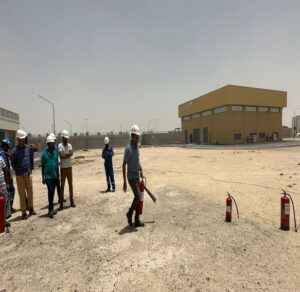
UAE +971 56 1 55 44 66 – Kuwait +965 51 38 38 68
UAE +971 56 1 55 44 66
Kuwait +965 51 38 38 68
Menu

UAE +971 56 1 55 44 66 – Kuwait +965 51 38 38 68
UAE +971 56 1 55 44 66
Kuwait +965 51 38 38 68
We offer fire safety training in Abu Dhabi to help corporate teams handle emergencies confidently. For advanced or on-site training, please contact us.
After completing the training, you will:
Basic Fire Safety in Abu Dhabi is an essential part of every organization’s health and safety plan. Fires remain one of the leading causes of death globally, making it crucial for employees to be prepared for emergencies. According to the National Fire Protection Association (NFPA), thousands of lives are lost each year due to fire-related incidents. This highlights why every workplace in Abu Dhabi must prioritize Basic Fire Safety in Abu Dhabi to protect lives and property.
Our Basic Fire Safety in Abu Dhabi program helps employees understand how to respond effectively in case of a fire. Since fires can happen anytime and anywhere, having the right knowledge and quick response skills can make the difference between safety and disaster. The training ensures that all team members, regardless of their role, are confident in handling emergency situations.
At our institute, we provide Basic Fire Safety in Abu Dhabi courses designed to equip participants with practical fire prevention and response skills. These sessions not only raise awareness but also promote a safer working environment. By enrolling your employees in our Basic Fire Safety in Abu Dhabi program, you ensure they have the knowledge and readiness to prevent and respond to fire hazards effectively.
All employees, from junior staff to upper management, should engage in fire safety training. It is vital for everyone in the workplace to comprehend fire hazards and emergency protocols.
Individuals tasked with workplace safety must possess a thorough knowledge of fire safety protocols and procedures to effectively lead and handle emergency situations.
Staff responsible for overseeing and maintaining the building's infrastructure should receive fire safety training to help them recognize potential hazards and respond appropriately in the event of a fire.
Human resources and training managers need to possess fire safety knowledge to incorporate safety protocols into company policies and training initiatives.
Assigned emergency responders are required to complete comprehensive fire safety training to effectively coordinate evacuation plans and provide assistance during emergencies.
Appointed emergency responders must participate in thorough fire safety training to manage evacuation plans and offer help during emergencies.
The fire safety training we offer in Sharjah, Dubai, and Abu Dhabi is an essential element of every organization’s health and safety strategy. This training equips all employees to respond quickly and efficiently during a fire, improving overall safety and potentially saving lives.
Fire safety training equips employees with the knowledge and skills necessary to effectively manage a fire emergency.
Comprehensive training enables employees to identify potential fire hazards and learn how to avert them.
When staff are trained in fire safety protocols, they become more assured in their capacity to manage emergency situations.
Fire safety training helps minimize or prevent property damage and the loss of assets.
Preventing or minimizing fire incidents through training results in savings on property damage, insurance premiums, legal liabilities, and interruptions to business operations.
Employees trained in fire safety are proficient in the correct use of fire extinguishers and other firefighting equipment. This knowledge can help control small fires before they escalate.
Significance of fire safety awareness, Data on fire-related incidents and their consequences.
Recognizing typical fire hazards in various environments (such as homes, workplaces, and public areas), Effective strategies for fire prevention, including the correct storage and management of flammable substances.
Categories of fire extinguishers and their correct applications (such as water, foam, CO2, and dry chemical), Practical training on how to use fire extinguishers, featuring the PASS technique, Summary of additional firefighting equipment (fire blankets, hose reels, and fire hoses).
Creating and rehearsing evacuation plans, Recognizing the significance of unobstructed escape routes and assembly areas, Defining roles and responsibilities during evacuation procedures.
Comprehending various fire alarm systems and their signals, Reacting correctly to fire alarm notifications.
Fire safety protocols and procedures tailored to the workplace, Roles and responsibilities related to fire safety within an organization.
Grasping suitable firefighting techniques for various types of fires, Hands-on demonstrations of fire suppression methods.
Summary of essential concepts and techniques discussed, A written or practical evaluation to assess comprehension.
Identifying whom to reach out to in the event of a fire emergency, Alerting authorities about fire hazards and incidents.






